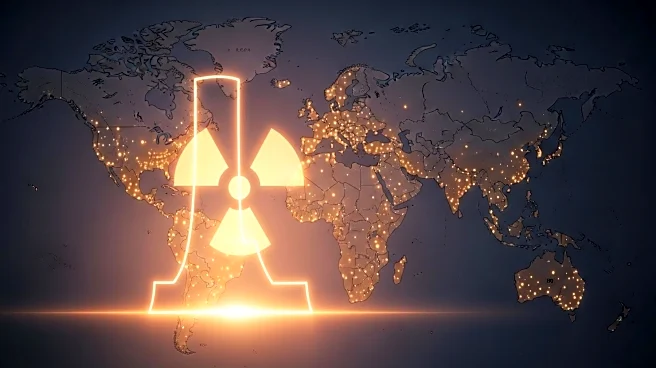What's Happening?
Following a devastating earthquake and tsunami in Japan, concerns have escalated regarding the safety of nuclear energy. The crisis at a Japanese power plant has led to significant releases of radioactivity, prompting anti-nuclear protests across Europe. Experts are debating the wisdom of building nuclear plants in seismic areas, highlighting the potential dangers of nuclear energy. The incident has sparked discussions on the need to reduce reliance on nuclear power and consider alternative energy sources. The situation remains critical as efforts continue to contain the damage and prevent a catastrophic meltdown.
Why It's Important?
The incident in Japan underscores the inherent risks associated with nuclear energy, which could have far-reaching implications for the global nuclear industry. Countries may reconsider their nuclear strategies, potentially impacting energy policies and investments. The disaster serves as a reminder of the potential dangers of nuclear power, influencing public perception and political decisions. As nations strive to reduce fossil fuel dependence, the debate over nuclear energy's role in a sustainable future intensifies. The outcome of this crisis could shape the future of energy production and safety standards worldwide.
What's Next?
Countries with nuclear programs may conduct safety reviews and reassess their energy policies. The global nuclear industry could face increased scrutiny and demands for stricter safety measures. Nations like Germany and India might reconsider their nuclear plans, while others may explore alternative energy sources. The situation in Japan will continue to be monitored closely, with potential long-term impacts on the nuclear sector's viability and public acceptance.
Beyond the Headlines
The crisis highlights ethical and environmental concerns surrounding nuclear energy. It raises questions about the balance between energy needs and safety, as well as the responsibility of governments and industries to protect citizens and the environment. The incident may prompt a reevaluation of energy priorities and the pursuit of cleaner, safer alternatives.










